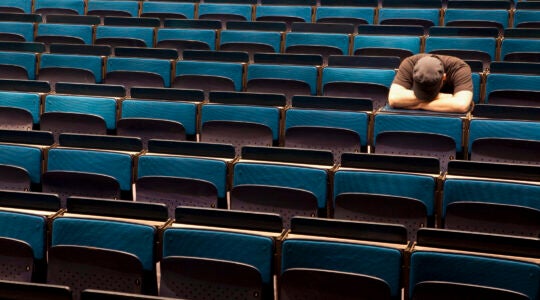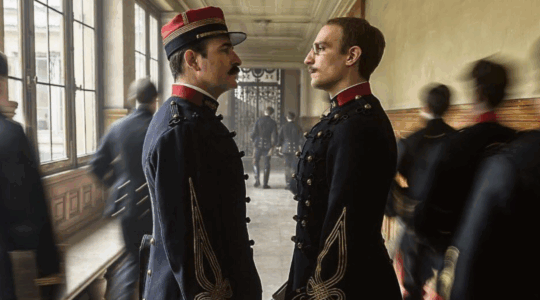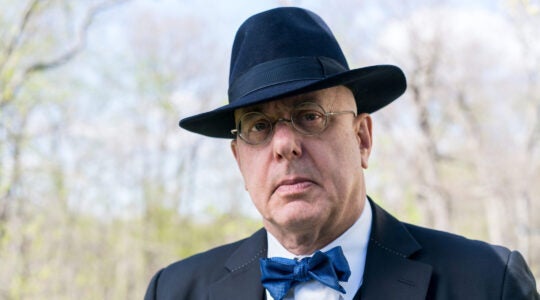As rabbis of Modern Orthodox synagogues, we consistently advocate for greater women’s involvement in Jewish life. As a result, we are often invited to speak at local non-denominational Jewish schools about halacha (Jewish law) and the role of women. Often in these pluralistic environments, students discover what differentiates the various denominations and learn about the presence of a mechitza (a separation between men and women) in Orthodox synagogues. We arrive at these forums and hear questions like: Why is Orthodoxy anti-women? Why is your synagogue so backwards that it still treats men and women differently? Aren’t we well past the point where egalitarianism is the societal norm?
We understand what prompts these questions. We are sensitive to the political and social environment in which these students’ opinions are formed. Yet we sense something distorted about the assumptions these students bring to their thinking about faith, and sometimes we push back. We ask: Are you bothered by the common societal practice of a man going down on one knee to propose to a woman? Are you offended that women receive engagement rings and men do not? Do you think it speaks ill of society that there are numerous websites, magazines, TV shows and entire TV channels that cater to a specific gender?
None of those gender specific societal norms bother the students. So then why, we ask, does it bother them that men and women sit separately during prayer services? If we all agree that men and women have different interests and predilections, should a faith enriched by thousands of years of wisdom and experience not reflect that reality?
It’s a question we should all be asking. It’s a question that we as rabbis of prominent modern Orthodox synagogues also ask. We appreciate the necessity of finding space within our communities for women to take meaningful roles of religious leadership. We have led our communities to create leadership opportunities suited to well–educated and motivated women. While that will continue to be an important focus for our communities, it should not come at the cost of Orthodox Judaism’s commitment to fostering a gender-specific Judaism.
Gender is a crucial part of what we are. Western society is becoming more and more gender specific and modern science is encouraging that trend. While the 60’s and 70’s pushed an androgynous ideal, Western society, today, has pushed back and embraced masculinity and femininity. Girls’ clothing has never been more pink and boys’ has never been more blue.
Masculinity and femininity are a fact of life, not an inconvenience that might be easily disposed of. Orthodox Judaism believes in the importance of engaging reality, not a world we wish existed.
As Jews, we try to improve the world with an understanding that good intentions can have unintended harmful consequences. As rabbis, we approach a task with a humility that says few things long deviate from the mean, and few problems are solved without creating new problems.
The Talmud in Masechet Yoma (69b) tells a powerful story that illustrates this point. After the destruction of the first Temple, Ezra attempted to destroy lust, because it so often drives humankind to sin. He and his colleagues prayed and “lust” was delivered into their hands. They imprisoned it for three days; after that, they sought a newly laid egg (to cure a sick person of illness) and could not find one. Sexual desire was necessary for the normal functioning of nature. In trying to improve the world, Ezra and his colleagues had failed to recognize the collateral damage they might cause. Changes need to made with the greatest of care, as they often have unintended and undesirable consequences.
As much as we might like to live in a world without gender distinctions, we cannot. By underselling the reality of gender differences in Jewish practice, we would be doing ourselves a great disservice. If men and women are different and have different psychological, emotional and spiritual needs, why would we want a Judaism that ignores those needs?
Men are attracted to women and women to men, specifically because we are different. Hollywood and the music industry are well aware of this. Jewish leaders need to be as well. While attraction is one piece of the equation, our gender differences affect so many parts of our lives including how we deal with stress, how we communicate, and how we experience love.
The mechitza is only one expression of how Judaism is gendered. Recent controversies regarding ordination of women, regarding young women donning tefillin, and regarding semi-egalitarian prayer groups – have often been conducted with an assumption that the arch of history will lead an enlightened Orthodoxy to egalitarianism while it is merely the recalcitrant parts of our community who remain fixated on a calcified legalism. We believe that traditional Judaism with its insistence upon gender roles has something to teach modernity. These lessons relate to a part of human nature that will not change; a community that ignores them will harm not only its cohesion but also the happiness of its members. While it is beyond the scope of this article to address each flash point between an egalitarian and a gendered vision of Orthodoxy, insightful explanations may be offered based upon a gendered vision of community for the roles men and women play in traditional services, in the rituals of halakha, and the clergy structure of our community.
At times, we wonder why a standard for egalitarian living would be demanded of religion, but not from the marketplace or from popular culture. Upon reflection, we believe it comes from the utopianism inherent in the spiritual quest. We want to live up to higher ideals and to divorce ourselves from our material and animal selves. Egalitarianism is in many ways a spiritual value. The quest is not ill intentioned, but like all utopian dreams, we will cause great harm if we do not temper our idealism with an appreciation for our full humanity.
Orthodox Judaism believes strongly in the eternal and divine wisdom of the Torah. While we have a long history of adapting to our times, we have never consciously reformed. Orthodox Judaism has kept the Jewish people alive for thousands of years. The recent Pew study on American Jewish life revealed that Orthodox Judaism has a much higher retention rate than the other denominations with a median age thirteen years younger than its closest counterpart. Our strength and vitality come from our strong commitment to Jewish education and practice, and the confidence that our Judaism is authentic and grounded. We see value in how each individual may express their God given uniqueness; we see value in how we may each contribute to our families, communities, and nation to become that much better, because we are part of a greater whole. We adjust to the times, but we don’t change because of them.
We will continue to embrace the Torah’s approach to the unique and special nature of men and women. This approach will continue to help make our boys and girls into strong, confident and proud Jewish men and women. We might be separated by a mechitzah, but our pursuit of these values unites us.
Rabbi Chaim Strauchler is the spiritual leader of Shaarei Shomayim Congregation in Toronto, ON.
Rabbi Joshua Strulowitz is the spiritual leader of West Side Institutional Synagogue in New York, NY.
The New York Jewish Week brings you the stories behind the headlines, keeping you connected to Jewish life in New York. Help sustain the reporting you trust by donating today.




